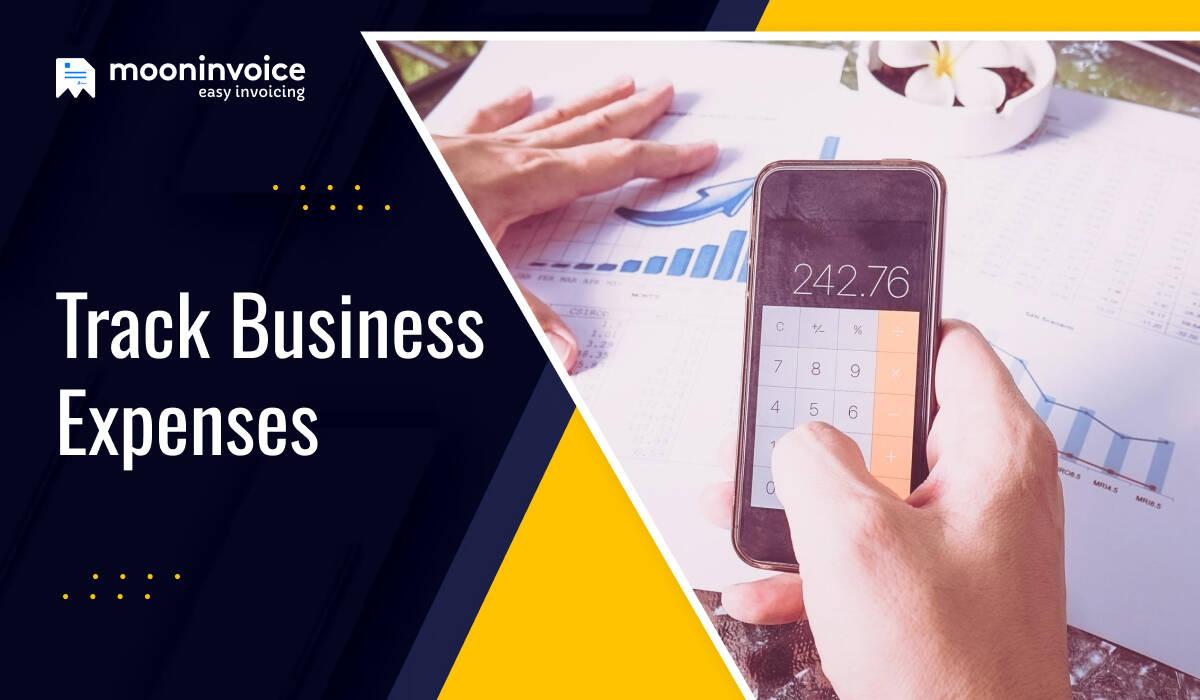Smarter Ways to Track Your Business Finances

Running a business — big or small — means keeping a constant eye on your finances. But let’s be honest: tracking business finances can feel like doing your taxes in the dark. Juggling spreadsheets, bank statements, invoices, and receipts can put even the steadiest entrepreneur in a spin. That’s where digital bookkeeping comes in — a smarter, tech-driven way to simplify financial tracking and keep everything in one organized system.
The good news? There are smarter, easier ways to track your business finances — ways that save time, boost accuracy, and help you make better decisions. In this post, we’ll explore modern tools, best practices, and real-world examples to help you build financial habits that let your business thrive. Whether you're a startup owner, solopreneur, or a seasoned business manager, you'd benefit from these strategies.
Why Smarter Financial Tracking Matters
When you track your finances more intelligently, you’re not just staying organized — you’re creating a roadmap for sustainable growth and business stability.
Before diving into the “how,” let’s talk about the “why.” Why does tracking finances smarter matter?
Accuracy and reliability:
Manual tracking leads to errors and missing data.
Better decision-making:
Timely financial insights let you pivot quickly — whether it’s increasing marketing spend or hiring a new team member.
Cash flow clarity:
Knowing how money moves in and out helps you avoid surprise shortfalls.
Compliance and audit readiness:
Organized records make tax season (and potential audits) far less stressful.
According to a recent survey, 46% of small businesses cited cash flow and profit visibility as their biggest financial challenges — and smarter tracking solves exactly that.
Automated Accounting Tools: Your Financial Superpower
Automation saves time, minimizes costly mistakes, and gives business owners clarity. Modern accounting tools are like having an accountant in your pocket, 24/7.
Cloud-Based Accounting Software
Cloud accounting tools like QuickBooks Online, Xero, and Wave have transformed how small businesses handle finances. These platforms automatically:
-
Sync bank transactions
-
Categorize expenses
-
Generate real-time financial reports
For instance, a freelance marketing consultant I worked with switched from Excel to QuickBooks and reduced her monthly bookkeeping time from 10 hours to just 3. She now spends that extra time on client strategy — not number crunching.
Invoicing and Payment Integration
Another smart move is using software that merges invoicing and payment. Tools such as FreshBooks or Zoho Books let you send an invoice and track its status — paid, overdue, or pending — all within one dashboard.
Example: A small graphic design studio integrated Zoho Books, and within six months, they reduced their average payment time by 40%. That meant their cash flow improved considerably — less chasing, more creating.
Embrace Real-Time Financial Dashboards
Dashboards make your numbers come alive. Instead of waiting weeks for reports, you can spot trends, risks, and opportunities the moment they happen.
Connect All Your Financial Channels
Imagine seeing your income and expenses in real time — without manual updates. Tools like Fathom, LivePlan, or the built-in dashboards in QuickBooks and Xero allow you to:
-
Track P&L (Profit and Loss)
-
Monitor cash flow
-
Visualize KPIs like gross margin or sales per client
Better still, many dashboards let you set up alerts — say, if your bank balance dips below a certain level or if an invoice crosses a 60-day due threshold. It’s like having a financial health monitor for your business.
Sample Dashboard Benefits
-
Instant insights: You see which product or service is most profitable.
-
Data-driven pivots: If expenses are creeping up, you can trim discretionary costs before they hurt margins.
-
Team alignment: Share the dashboard with your accountant or co-founders so everyone sees the same picture.
Smart Budgeting and Forecasting
Budgets aren’t just about cutting costs. Smarter budgeting strategies empower you to plan ahead, allocate wisely, and achieve predictable, consistent financial outcomes.
Zero-Based vs. Incremental Budgeting
Rather than just increasing last year’s numbers by a flat percentage, use zero-based budgeting. This means you justify every cost from scratch — the smarter way to align spend with current priorities.
Example: A small subscription box business adopted zero-based budgeting and cut wasteful advertising campaigns. They reinvested those funds into product R&D, boosting customer retention by 15% in a quarter.
Rolling Forecasts
Instead of creating a static 12-month budget, try a rolling forecast updated monthly or quarterly. This dynamic approach keeps your projections aligned with reality.
For instance, if a new client delays their project, you’ll catch the shortfall early and adjust ad spend or hiring plans accordingly. It’s proactive, not reactive.
Expense Management Made Easy
Tracking expenses doesn’t have to be stressful. With the right digital tools, you can capture, categorize, and control spending with almost zero effort.
Use Receipt-Scanning Apps
Tired of losing receipts? Apps like Expensify, Receipts by Wave, and Shoeboxed let you snap a picture — they extract data and sync it to your accounting system. No more shoebox full of crumpled receipts.
A delivery startup I know uses Expensify. Their drivers simply snap receipts, submit them, and the finance team gets categorized expense entries — all within seconds. Expense reporting days dropped from two days to two minutes.
Company Cards with Smart Controls
Business debit/credit cards from providers like Brex, Ramp, and Divvy tie directly into software dashboards. You can:
-
Set spending limits
-
Automatically categorize expenses
-
Issue virtual cards for one-time purchases
This level of control increases visibility and lowers fraud risk — a win-win for growing businesses.
Leverage Insightful Reporting
Reports don’t just reflect numbers — they tell the story of your business. Smarter reporting ensures you’re reading that story accurately and acting on it quickly.
Monthly Close Checklist
Create a simple monthly close checklist — reconcile bank statements, record depreciation, verify payroll entries. This habit ensures your books are always up-to-date and audit-ready.
Analyze Key Metrics
-
Gross margin: Are you pricing products or services for profit?
-
Burn rate (for startups): How long until you need additional funding?
-
Accounts receivable days: Are clients paying on time?
-
Return on investment (ROI): Especially for marketing and tool subscriptions.
With smart tracking tools, these metrics auto-generate. You get actionable insights, not just data.
Real-Life Case Study: Boutique Bakery Boosts Profitability
Case studies prove the value of smarter financial tracking. Here’s how one small bakery completely transformed its operations by modernizing its accounting.
Sweet Crumbs, a boutique bakery:
-
Adopted Xero for cloud accounting.
-
Integrated a receipt-scanning app for ingredient costs.
-
Used Divvy for company card controls.
-
Set up a real-time dashboard showing margins, cash flow, and sales by product line.
-
Shifted to zero-based budgeting for operations and marketing.
Results:
-
Bookkeeping time dropped by 75%.
-
Ingredient costs fell by 12% as the owner spotted long-standing overpriced supplier lines.
-
Cash flow jumped 20%, enabling reinvestment into new product launches.
These smarter financial habits didn’t just reduce paperwork — they upleveled business performance.
Tips for a Smooth Start
Getting started with smarter financial tracking doesn’t have to be overwhelming. A few small, intentional steps can build powerful money management habits.
-
Pick one tool at a time. Don’t overwhelm yourself — start with accounting software, then layer on dashboards or scanning.
-
Automate bank feeds from day one. No more manual entry mistakes.
-
Train your team to use expense apps and dashboards. Consistency matters.
-
Schedule regular reviews — weekly check-ins and monthly closes make smarter tracking stick.
-
Consult professionals. Your accountant or financial advisor can help tailor budgets or dashboards to your needs.
Conclusion
Tracking your business finances doesn’t have to be a dreaded chore. With cloud accounting, smart dashboards, receipt apps, and budgeting approaches like zero-based and rolling forecasting, you can put your financial tracking on autopilot — while gaining clarity and control.
Starting small — maybe with a free trial of Xero or QuickBooks — can spark a serious transformation. Before you know it, you’re making strategic financial decisions based on clean, real-time data, instead of guesstimates. And if you’d like expert guidance on setting up smarter financial systems, consider partnering with ABM Digiital Accountants — specialists in helping businesses master accounting with confidence.
- الألعاب
- Religion
- Party
- Networking
- Music
- Literature
- Art
- Health
- Gardening
- Shopping
- Food
- Fitness
- Film
- Drinks
- Dance
- Crafts
- Causes
- Wellness
- Devotional Reflections
- Bible Study & Scripture Insights
- Prayer & Worship
- Christian Living
- Spiritual Growth & Discipleship
- Testimonies & Personal Journeys
- Christian Theology & Doctrine
- Church Calendar & Liturgical Seasons
- Christian Service & Mission
- Gardening
- Health
- الرئيسية
- Literature
- Networking
- أخرى



